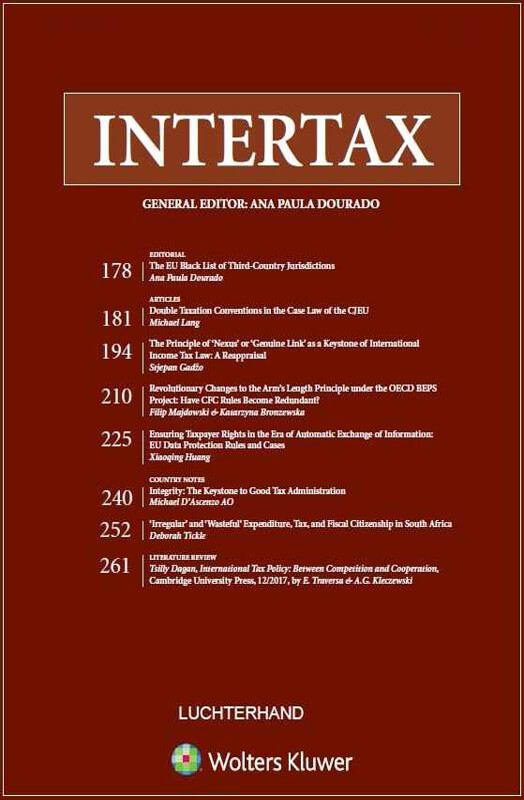Home > All journals > Intertax > 49(11) >

$25.00 - Rental (PDF) *
$49.00 - Article (PDF) *
Jesper Johansson
Intertax
Volume 49, Issue 11 (2021) pp. 948 – 955
https://doi.org/10.54648/taxi2021094
Abstract
This contribution examines the decision of the Court of Justice of the European Union (CJEU) of 4 July 2018 in Case C-28/17 NN A/S concerning the compatibility of a Danish rule prohibiting double deductions of losses with the freedom of establishment in Article 49 of the Treaty on the Functioning of the European Union (TFEU). In this case, the Court found the rule to be compatible with the freedom of establishment unless its application deprived the group of any effective possibility of deducting the loss in either of the two Member States involved. While this article finds merit in the Court’s reasoning, it also finds a few inadequacies mainly due to the Court disregarding differences in tax rates between Member States. Another finding is that, from a theoretical perspective, Denmark should not be required to allow the group to set off its loss considering the specific circumstances at hand in the underlying case. Furthermore, the judgment is presented as a potential trendsetter since it represents a development in the Court’s case law on rules preventing double deductions of losses, now handled in the Anti-Tax Avoidance Directive (ATAD).
Keywords
ATAD, NN A/S, CJEU, freedom of establishment, trendsetter.
Extract
